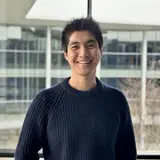Gates Foundation Grants Support Faculty-Led Initiative to Encourage Masking and COVID-19 Vaccines in the Developing World

New grants from the Bill & Melinda Gates Foundation (BMGF) are fueling the expansion of a Yale School of Management faculty-led initiative to promote mask-wearing and rural vaccine delivery in the developing world.
The BMGF has donated $3 million to the NORM project, which last year established a successful formula for mask-wearing implementation in Bangladesh, Nepal; Pakistan, India; and parts of Latin America. The BMGF has additionally donated a $645,000 grant to fund research into vaccine delivery in remote regions of India, while the Douglas Marshall Jr. Family Foundation has provided $307,000 to fund similar work on vaccine promotion in Lahore, Pakistan.
Based on research led by Jason Abaluck and Ahmed Mushfiq Mobarak, both professors of economics, the NORM project’s initial study showed that a “cocktail” of four interventions substantially increased mask usage. The elements include no-cost masks delivered door-to-door; offering information on mask benefits; reinforcing mask-wearing; and modeling and endorsement by local leaders. To reinforce these key elements, Mobarak’s team created the acronym NORM. A second stage in the study found that the villages where the intervention took places had lower levels of symptomatic COVID infections, especially among older people and when surgical masks were used.
With the $3 million grant, NORM will build on previous work by investigating the impact masking has on reducing asymptomatic infections. “The original study tracked the effects of masking only on symptomatic infection,” Abaluck said. “But it’s important that we look at the whole range.”
Researchers will also investigate effective methods of scaling the mask project, as well as assessing transmission rates in Bangladeshi schools.
With the second grant, researchers will pilot efforts to determine if the NORM method can be adapted to facilitate vaccine delivery in rural areas of India and Sierra Leone. “We have a model of encouraging mask use,” Mobarak said. “Now we want to see if it can be used with vaccination. It’s not a question of vaccine hesitancy. The people want them. It’s an issue of efficient delivery.
“If we can demonstrate that vaccines can be delivered cost-effectively even among remote, rural populations using these controlled trials, we hope that it will change the conversation around the urgency of distributing vaccines to low-income nations. Our current sluggishness is giving the virus more opportunities to mutate into other dangerous new variants like omicron.”
Padmini Srikantiah, deputy director on the pneumonia team at the BMGF, said that the success of NORM’s initial research encouraged them to make the new grant. She said she hopes that the ongoing research will yield robust data about impact, scalability, sustainability, and cost effectiveness.
“If we’re thinking about this research as the basis for shaping policy recommendations, we need a combination of analyses and data to propose to governmental partners,” Srikantiah said.
Last year, GiveWell gave Mobarak’s team the initial $3.5 million grant that launched the NORM project. Since the beginning of the COVID-19 pandemic, Mobarak has been among a team of researchers studying how to address the crisis in the developing world, especially South Asia.
“This was a policy with global relevance to pretty much every country at the time,” said GiveWell program officer James Snowden. “The initial research supplied data showing that masks do help slow the spread of the virus and that people can be persuaded to wear them. It makes sense that this research now be extended to vaccines.”
Recent Yale SOM graduate Janani Rajashekar ’21 is part of the NORM project campaign. Rajashekar is a “scale-up coordinator,” organizing delivery of resource, as well as communication and coordination with potential partners.
Rajashekar said that conversations with policy makers in nations where NORM research is underway have yielded ideas on how to proceed and broaden the project. “We want to increase vaccine take-up and understand the effect of the presence of both masks and vaccine in the community at the same time,” she explained. “We need to determine which aspects of the NORM model are most effective.”
Read more about the research on Yale Insights:
Study in Bangladesh Identifies Keys to Encouraging Mask-Wearing
In a First, Randomized Study Shows That Masks Reduce COVID-19 Infections



